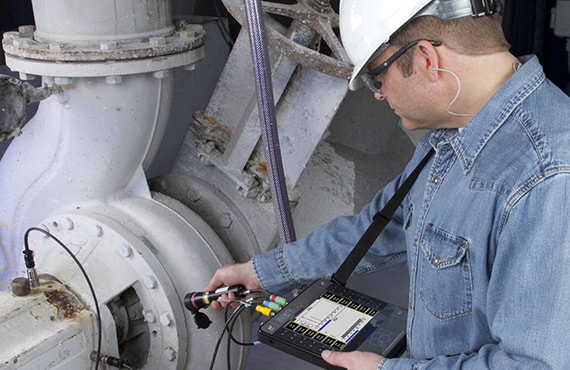GB 2626 – Respiratory Protective Mask Testing
The GB 2626 standard is a crucial benchmark in ensuring the safety and effectiveness of respiratory protective masks used across various industries, including oil & gas. This national standard sets stringent requirements for the performance and design of respirators intended to protect workers from inhaling harmful airborne particles, gases, or vapors.
The testing process outlined in GB 2626 evaluates two key parameters: filter efficiency and air tightness. Filter efficiency measures how well a mask blocks particulate matter, while air tightness ensures that the mask fits snugly around the face to prevent leaks. These tests are critical for compliance with occupational health and safety regulations.
In the oil & gas sector, where workers often encounter hazardous substances such as hydrocarbons, toxic chemicals, and respiratory irritants, ensuring the reliability of protective masks is paramount. GB 2626 testing ensures that masks meet the necessary standards to protect personnel effectively.
The process involves rigorous procedures to ensure accuracy and consistency. Masks are subjected to a series of tests using standardized test dummies designed to mimic human breathing patterns. The efficiency testing measures how well the mask filters out particulates, typically in sizes ranging from 0.3 microns upwards. Air tightness is tested by pressurizing the mask and checking for any leaks that could compromise its protective function.
Compliance with GB 2626 not only enhances worker safety but also supports regulatory requirements imposed by governments and international standards bodies like ISO, IEC, and ASTM. By adhering to this standard, organizations can ensure their respiratory protection equipment is up-to-date and effective in safeguarding workers' health.
The importance of such testing cannot be overstated, especially for sectors with high-risk environments. By investing in GB 2626 compliant masks, companies not only comply with legal requirements but also contribute to the overall safety culture within their operations.
Our laboratory offers comprehensive GB 2626 testing services tailored to meet the unique needs of the oil & gas industry. Our expertise ensures that every mask undergoes thorough and accurate testing, providing reliable data for decision-making processes. Whether you're a quality manager looking to ensure compliance or an R&D engineer aiming to innovate safer products, our services are designed to support your objectives.
Why It Matters
The safety of workers in the oil & gas sector hinges on the effectiveness of their respiratory protective masks. GB 2626 testing is essential because it guarantees that masks meet stringent standards for filter efficiency and air tightness, two critical factors that determine a mask's ability to protect against hazardous materials.
- Filter Efficiency: Ensures that respirators can effectively block particulate matter of various sizes, including those as small as 0.3 microns.
- Air Tightness: Verifies that the mask fits securely around the wearer's face, preventing any leakage or compromise in protection.
By adhering to these stringent tests, companies can ensure their workers are protected against potential hazards, thereby reducing the risk of occupational illnesses and accidents. This not only enhances safety but also contributes to a positive corporate reputation for prioritizing employee welfare.
Benefits
GB 2626 testing brings numerous benefits to organizations in the oil & gas sector, particularly those involved in condition monitoring and integrity testing. These include:
- Enhanced Worker Safety: Ensuring that masks meet the highest standards helps protect workers from inhaling harmful substances.
- Regulatory Compliance: Adhering to GB 2626 ensures compliance with national and international regulations, reducing the risk of legal penalties.
- Improved Product Quality: Testing allows for continuous improvement in mask design and functionality, enhancing overall product quality.
- Increased Efficiency: By providing accurate test results, it helps companies identify potential issues early and address them promptly.
In addition to these benefits, organizations that invest in GB 2626 testing can also build a strong safety culture within their operations. This approach not only enhances worker trust but also supports long-term business sustainability by minimizing health risks associated with exposure to harmful substances.
Industry Applications
- Oil & Gas Extraction: Ensuring workers are protected from inhaling hazardous hydrocarbons and other airborne contaminants.
- Pipeline Construction: Providing masks that protect workers from potential exposure to toxic chemicals during construction activities.
- Rig Maintenance: Supporting safe maintenance of oil rigs by ensuring respiratory protection against various air pollutants.
- Refining Operations: Guaranteeing the safety of refinery workers who are exposed to a wide range of hazardous substances.
The use of GB 2626 compliant masks is not limited to these applications but extends across other sectors where respiratory protection is essential. The standard’s versatility and robustness make it an indispensable tool for maintaining occupational safety standards worldwide.





